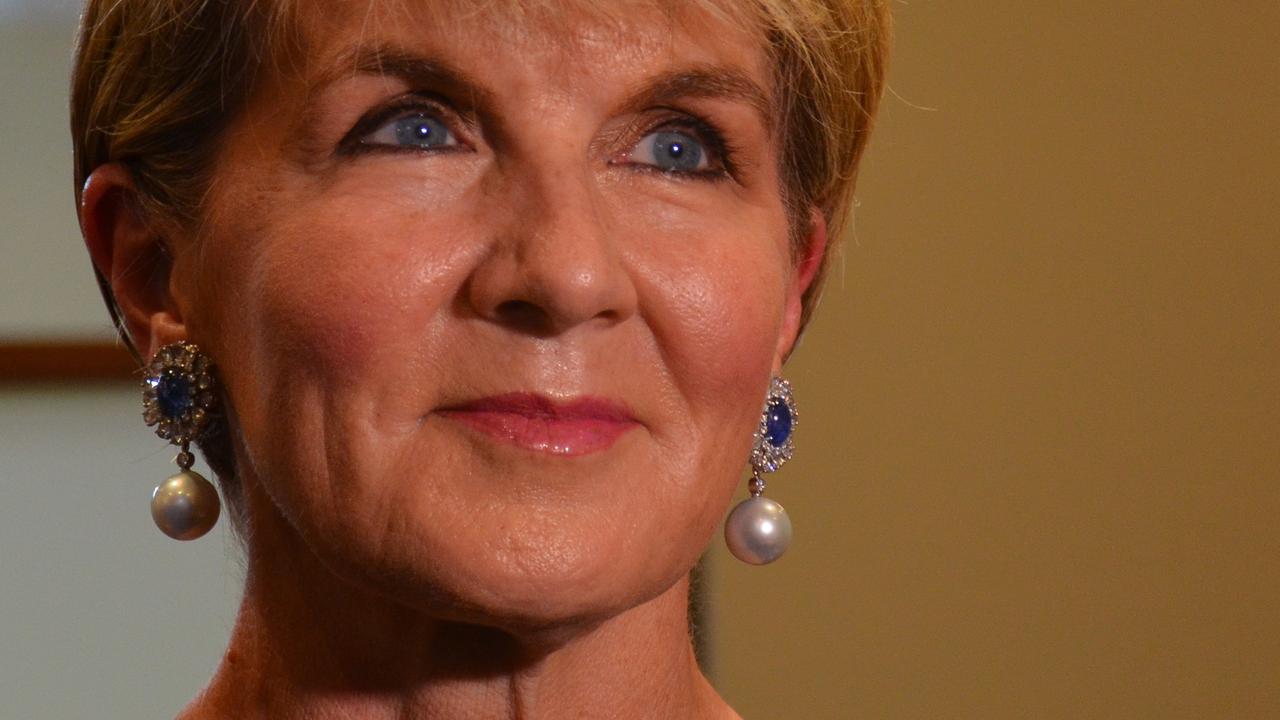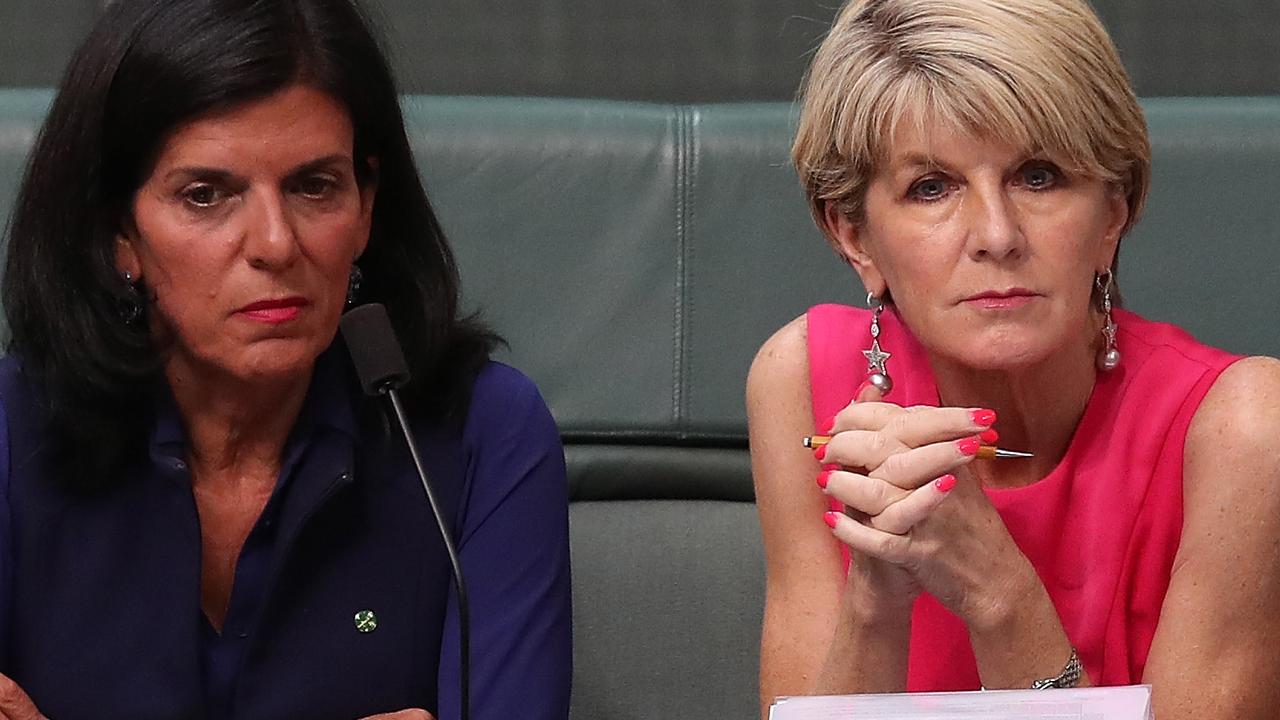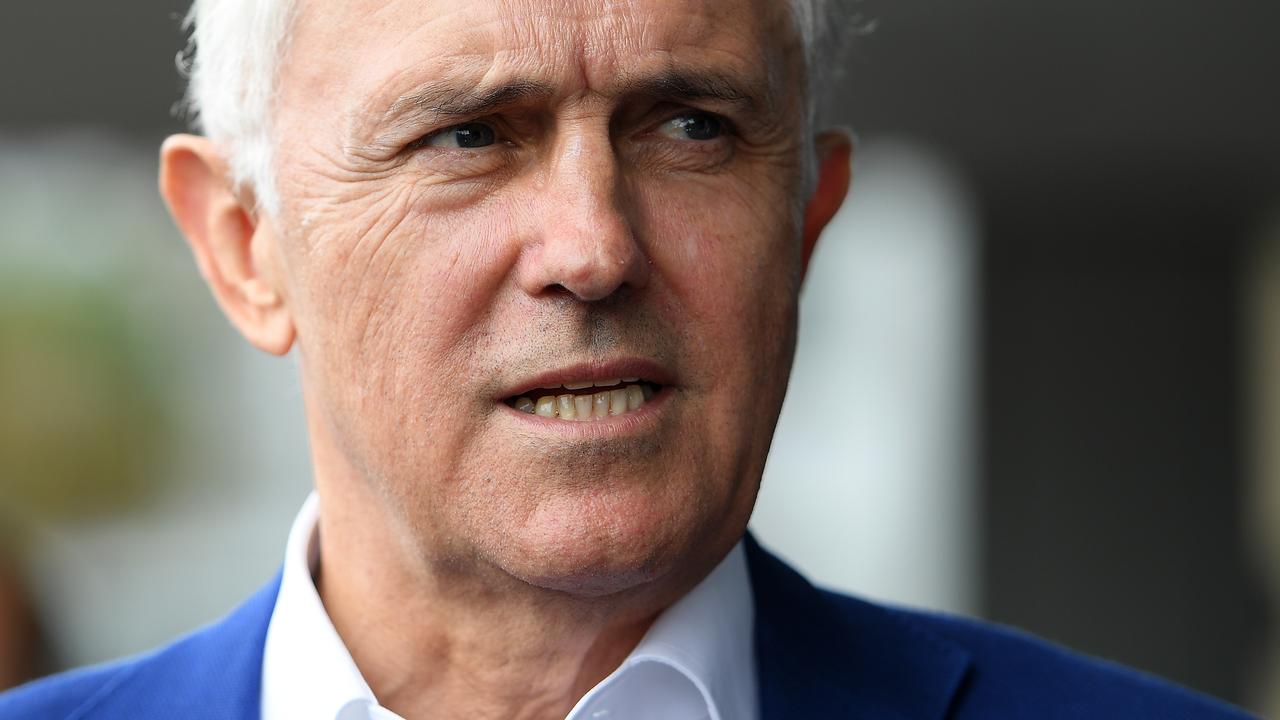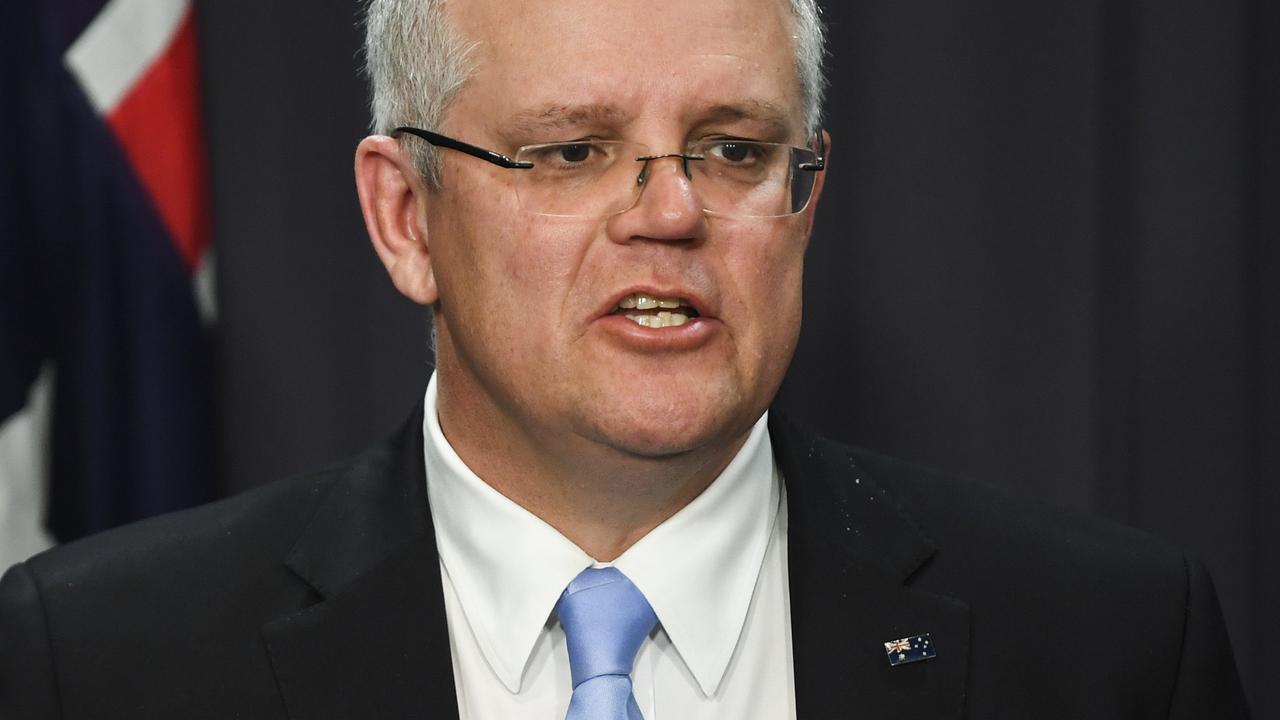The Julie Bishop myth: It isn’t just about sexism
As speculation about Julie Bishop’s future becomes increasingly wild, a myth about her defeat in the last leadership contest is growing.
COMMENT
This week Julie Bishop addressed the increasingly wild speculation about her future, saying she “intends to run” at the next election.
Naturally, that satisfied no one, because after a decade of ceaseless political skulduggery the word “intend” has lost all discernible meaning.
Kevin Rudd had no intention of returning to the Labor leadership. Malcolm Turnbull had no intention of challenging Tony Abbott. Scott Morrison fully intended to remain treasurer for the rest of his working days.
In other words, politicians’ intentions change swiftly and easily.
The reason so many of us are obsessed with Ms Bishop’s decision is that she would be the obvious candidate for the Liberal leadership, should Scott Morrison succumb to the seemingly inevitable and lose this year’s election.

Who else would there be?
Malcolm Turnbull is in that torturous phase between prime minister and private citizen where he still does press conferences for some reason.
Tony Abbott remains as unpopular now as on the day he bit into that raw onion.
And if the government does implode, Peter Dutton will probably lose his seat.
All of which makes Ms Bishop the immediate frontrunner.
Of course, many of us are still baffled by her last tilt at the leadership. Ms Bishop received just 11 votes in the first ballot against Mr Morrison and Mr Dutton, despite being by far the most popular candidate with the Australian people.
Why did she lose so comprehensively? Sexism within the Liberal Party has been widely blamed — an explanation fuelled by the stories of other women, like Kelly O’Dwyer and Julia Banks, who have spoken out since.
No doubt there are some dinosaurs in parliament who would have been far more likely to vote for someone with Ms Bishop’s popularity and resume if she’d been named Julian instead.

But was that the only reason, or even the main reason for Ms Bishop’s defeat? No. That is a myth.
There are two factors that decide someone’s viability as a leader — their appeal to the public, and their popularity among their colleagues.
In the lead-up to the 2007 election, before everyone realised he was a truly weird man, Kevin Rudd was irresistibly popular with the people. But his fellow MPs quickly came to despise him, and were only too eager to remove him from the prime ministership.
Julia Gillard had the inverse problem. She was extremely popular with her colleagues, but the public stopped listening to her, so in desperation Labor turned back to Mr Rudd.
The secret to longevity is combining those two types of popularity.
Look at the August leadership ballot through that lens. Liberal MPs needed a leader who could woo the public while also healing the divisions between the party’s moderate and conservative wings.

Mr Dutton was, to put it diplomatically, not a particularly popular candidate. In most polls gauging Australians’ preferred Liberal leader he was stuck in the single digits.
Ms Bishop was popular, but philosophically, she was significantly more moderate than the party’s centre of gravity. Like Mr Turnbull, she would always have struggled to convince the Liberal base she was “one of them”, and would not have satisfied the conservative MPs who had orchestrated the coup in the first place.
Besides, how could the government justify knifing its prime minister only to replace him with someone who shared virtually all of his views?
Scott Morrison was somewhere in the middle. He built up a lot of credibility with the conservative wing when he was immigration minister, and had the best chance of uniting the party before an election — not to mention pilfering votes from Mr Dutton in round two of the ballot.
“Despite our hearts tugging us to Julie, we need to vote with our heads for Scott in round one,” read one particularly revealing message in a controversial WhatsApp thread between moderate MPs before the vote.
That calculation, more than anything else, was the reason Ms Bishop got so thoroughly snubbed.

None of this should excuse the Liberal Party’s undeniable problem with women.
At the moment just 12 of the government’s 74 MPs in the lower house are women, and that could conceivably fall to as few as six after the next election.
Nor does it preclude Ms Bishop from becoming leader in the future, should she decide to stay in politics.
If Mr Morrison does lose the election, as polls have long indicated is likely, chastened MPs might finally turn to their most popular option.
But when we dissect Ms Bishop’s last, failed attempt to seize the leadership, it is not enough to cry ‘sexism’.
Internal party politics might be putrid, but they do matter.




